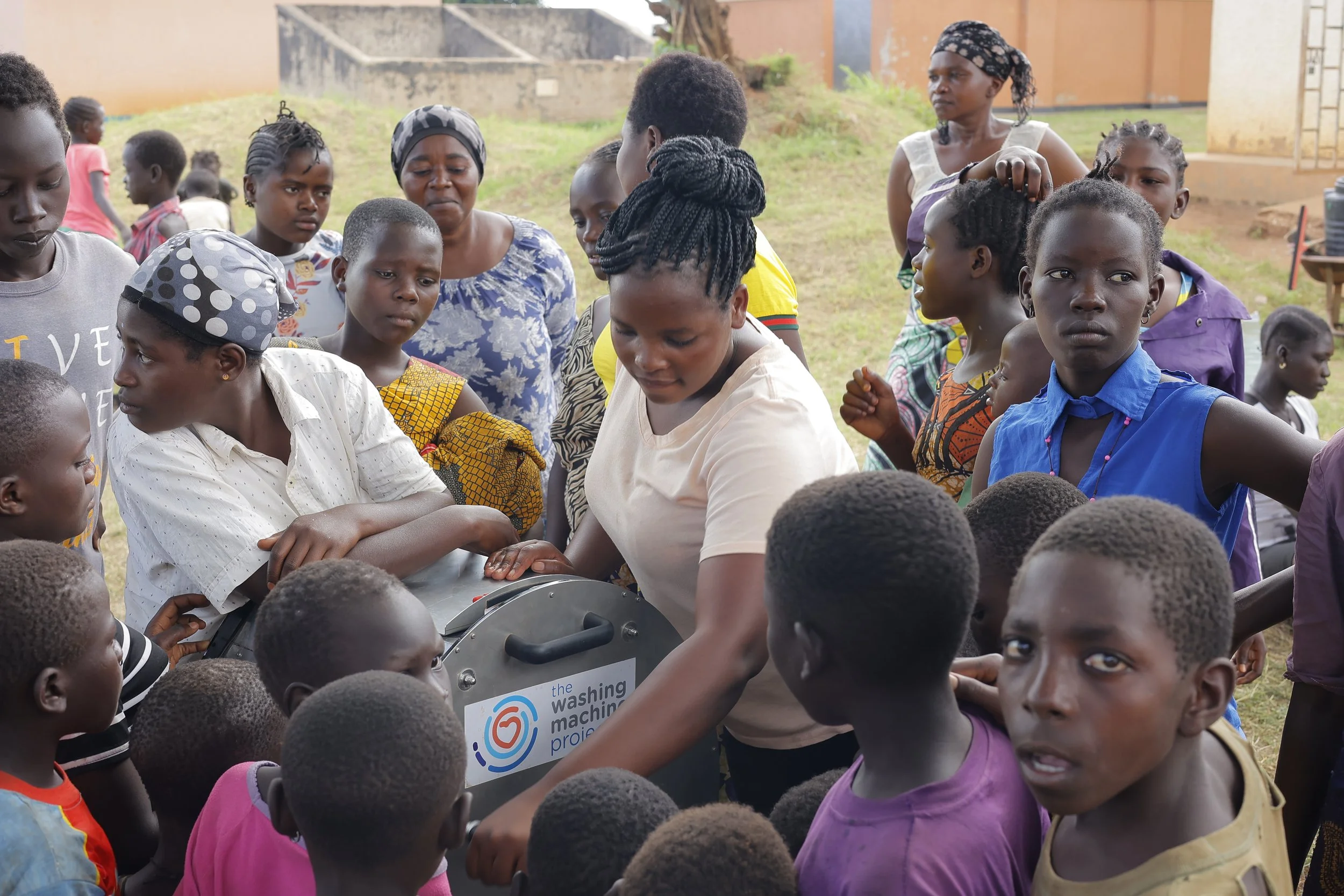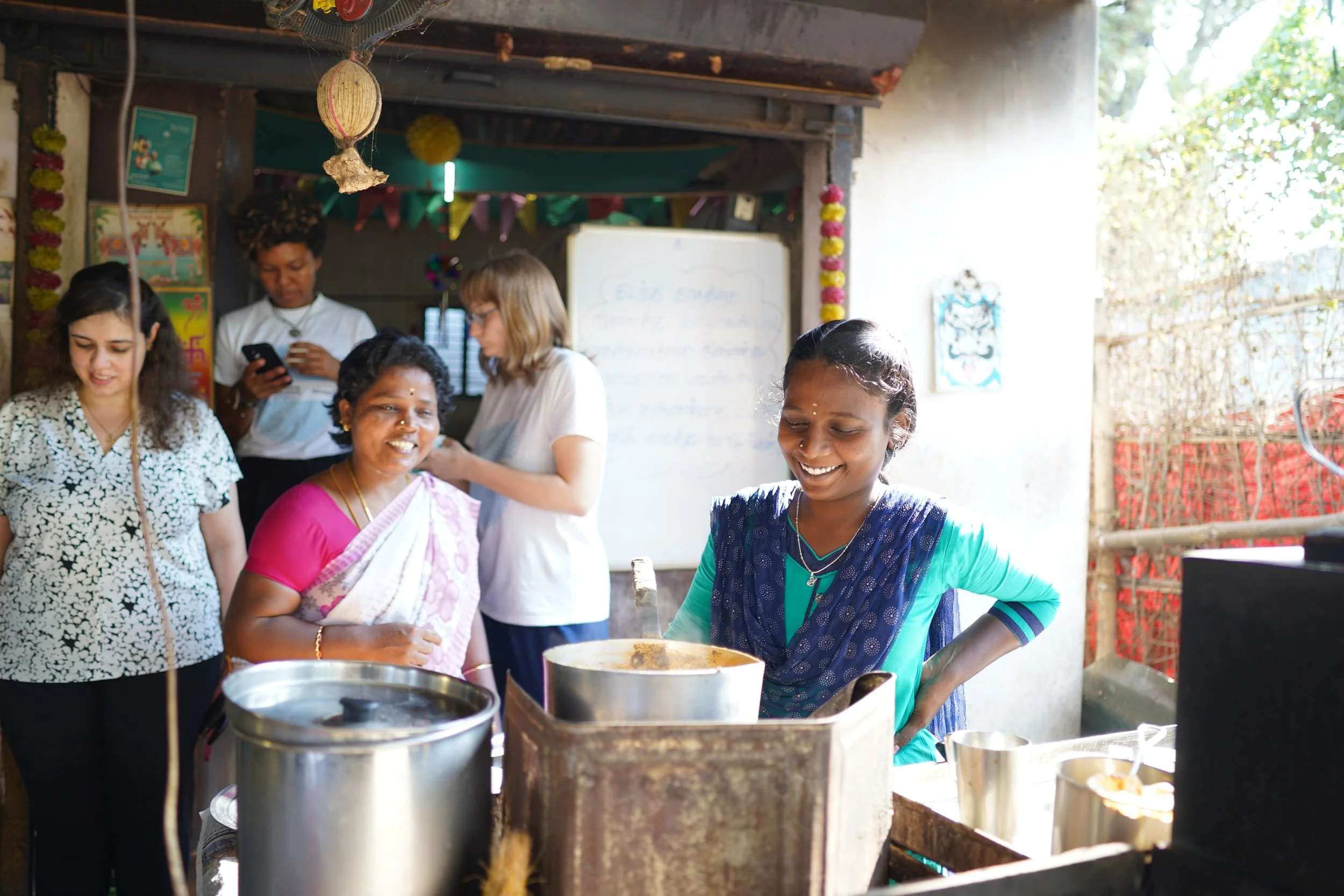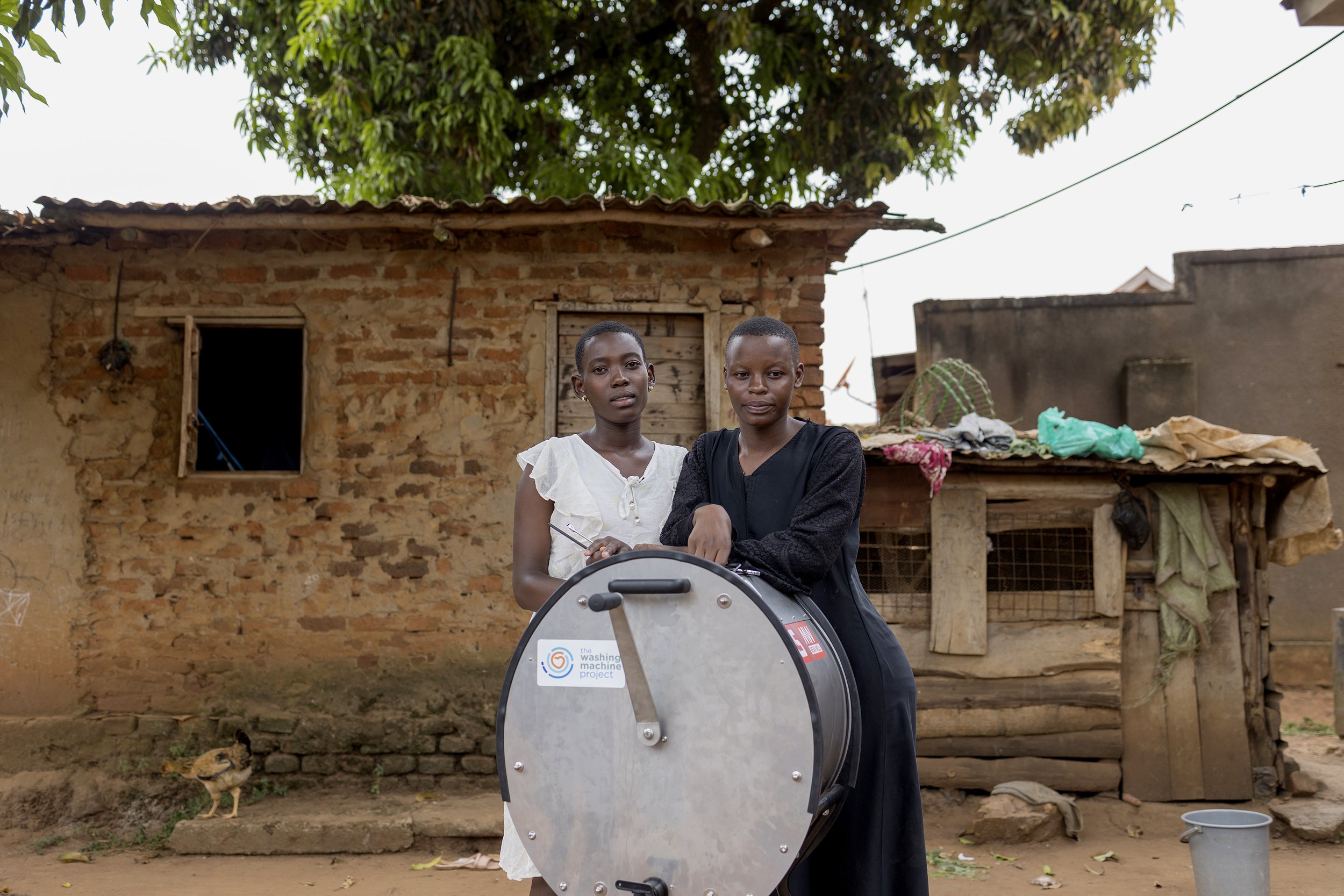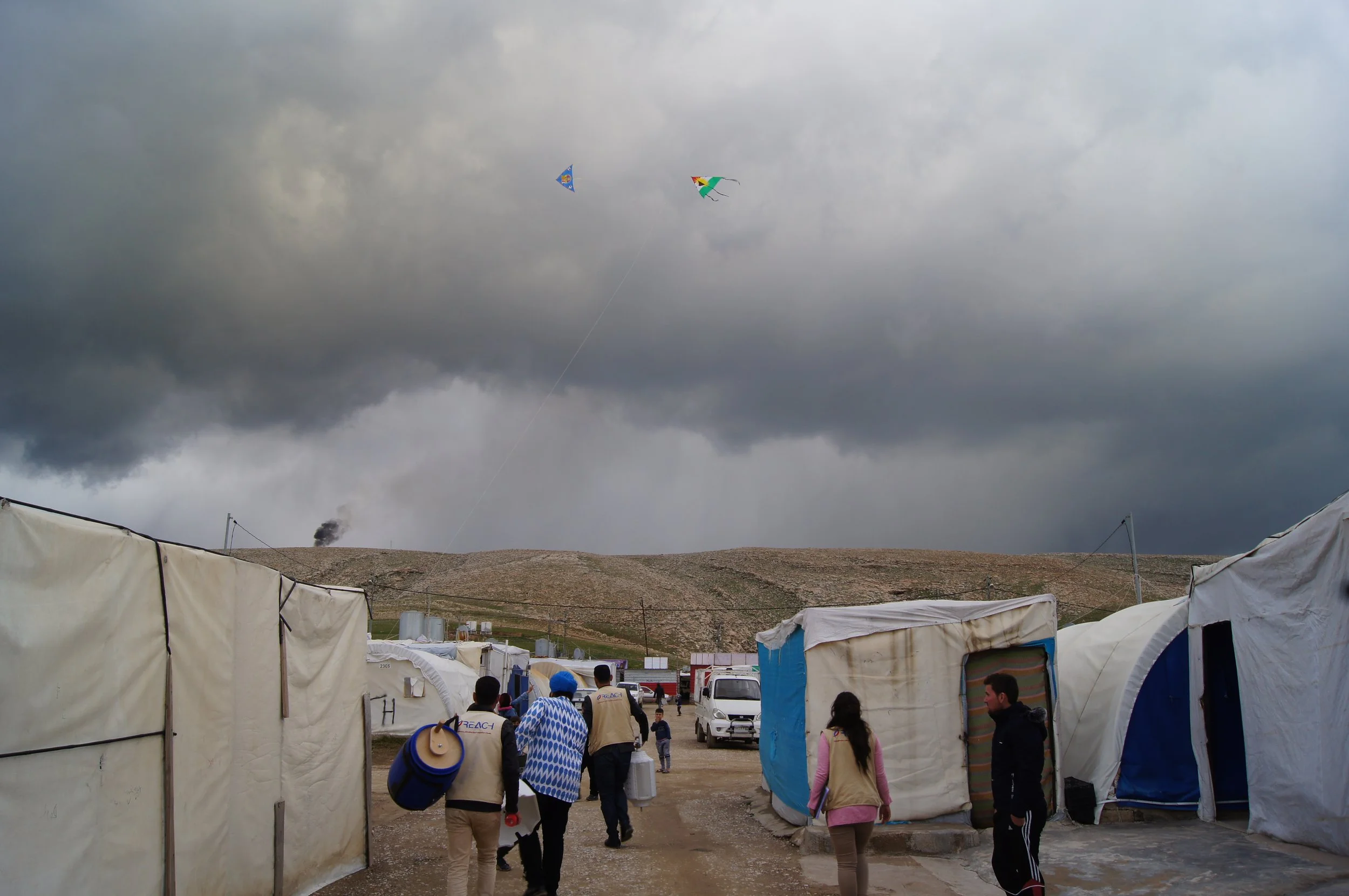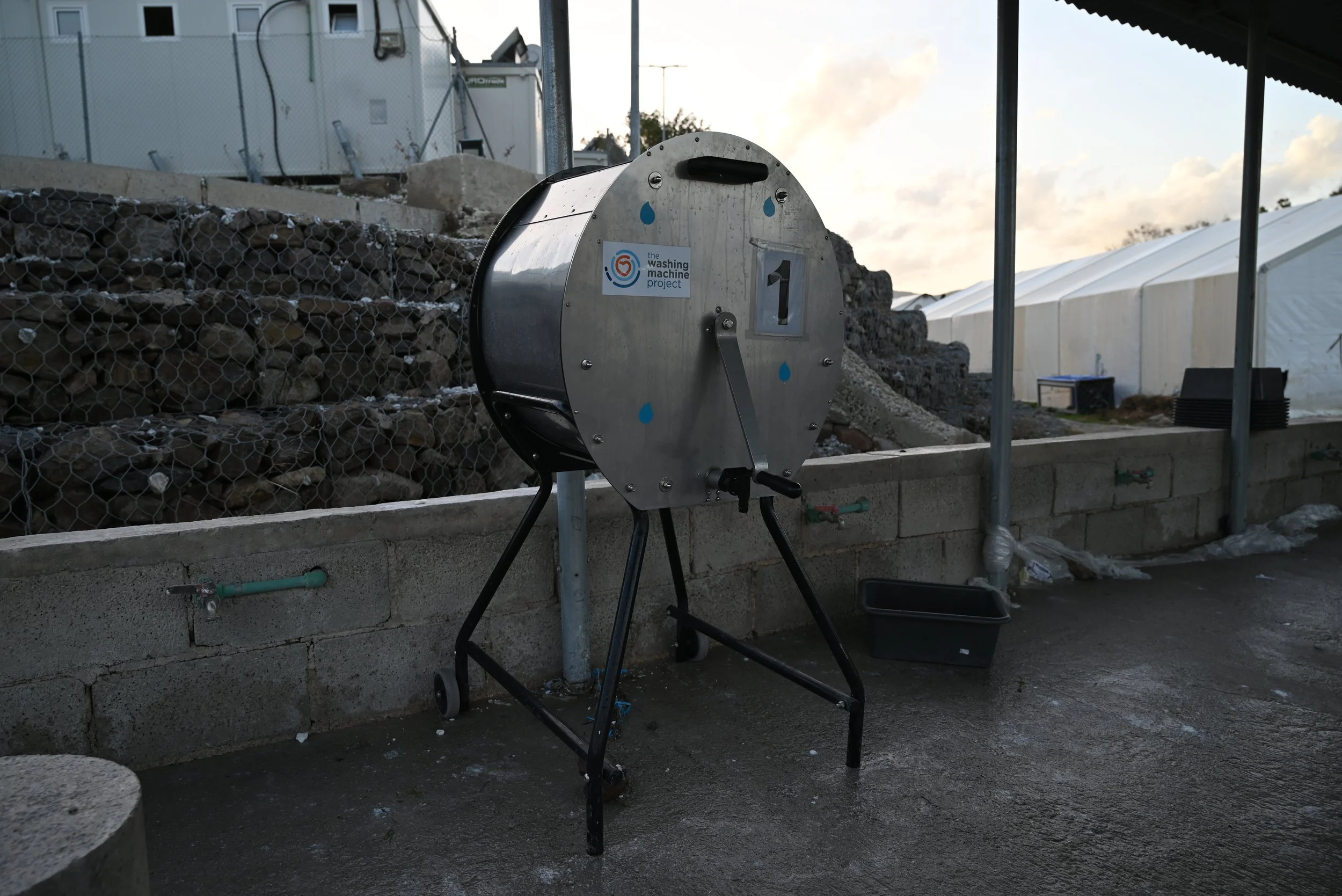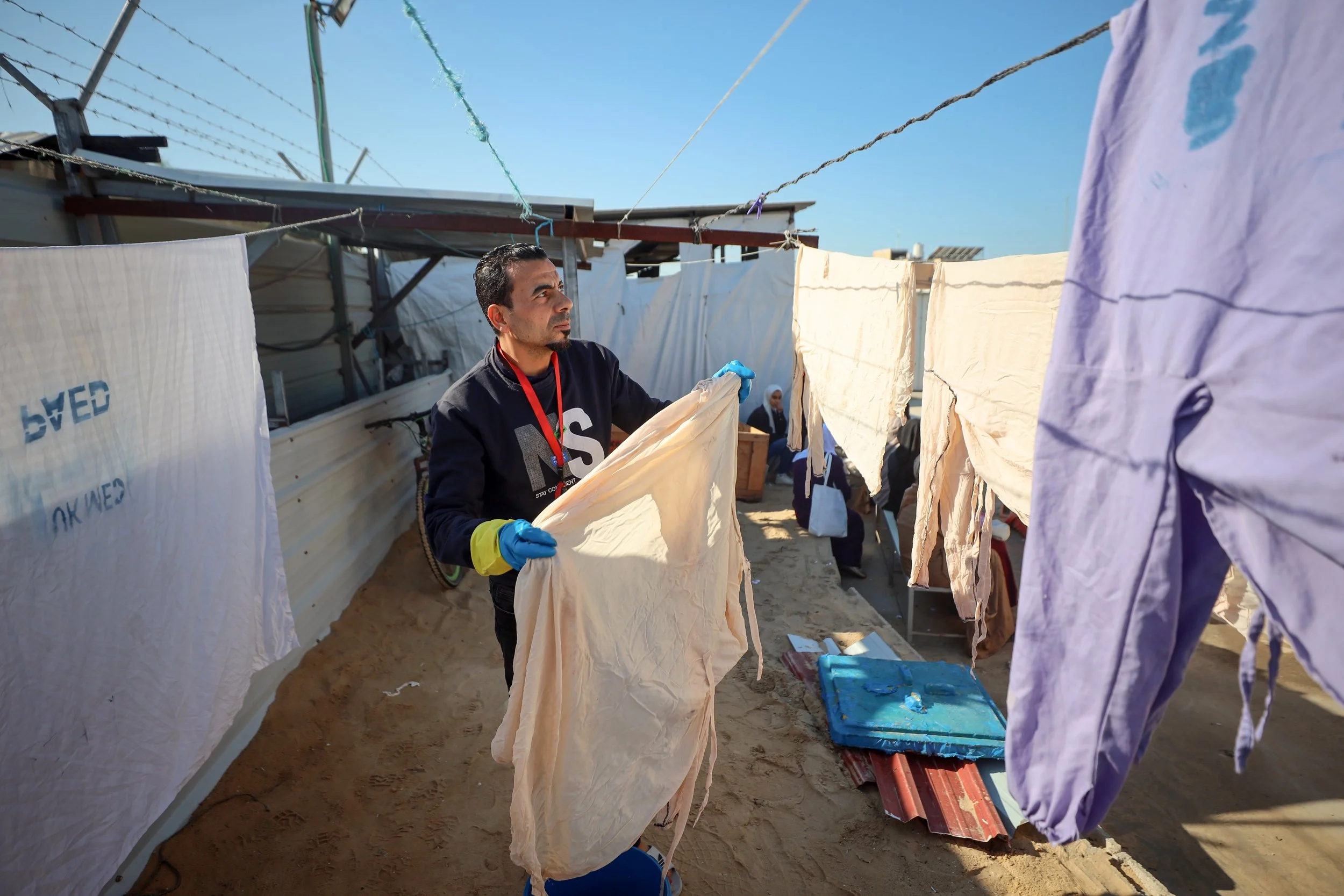Development
Humanitarian
Crisis
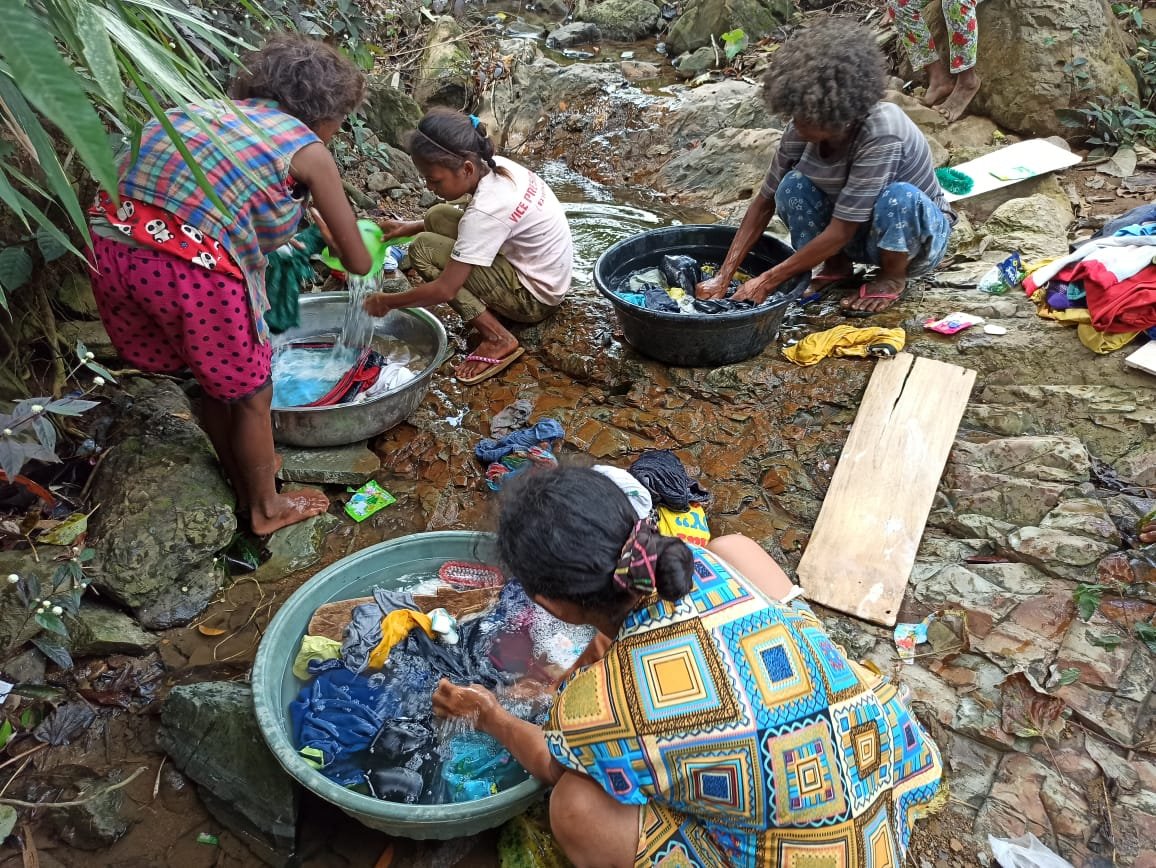
Development
-
Working with in-country partners to support individuals, families, women’s groups and communities.
Read on to learn more about our work in India, Mexico and Uganda.
The Washing Machine Project is proud to partner with smaller NGOs, local organisations and charities to facilitate distributions of our machines within a development context.
Being able work with those on the ground who really understand the local language, religion and culture provides us with the best foundation to make lasting impact.
Our partners provide not only guidance and expertise, but joint research that enables TWMP to best support users in whichever country or context we operate.
Partnering and investing in the local organisations allows us to not only tailor machines for specific needs, it allows us to design the best distribution and training experience for users. Moving towards a model whereby TWMP core staff won't be needed on the ground - having partners in-country owning monitoring and evaluation, check ups, maintenance and fixes.
Our core mission is to empower people by reclaiming time that's lost to hand washing clothes.
Partnering with organisations who share the same vision means that we share insights from other parts of the development space, including income generation, community groups for women and other sustainable solutions for low income, displaced or remote communities.
India
The Washing Machine Project conducted a pilot programme in Tamil Nadu, India, distributing in March 2024.
Average wash time was reduced from 53 minutes to 38 minutes. Weekly wash time decreased from 371 minutes to 114 minutes.
Reported pain in neck, back, hips, joints, knees, and feet decreased. Reported tiredness after washing also decreased. Additionally, reported stress related to laundry decreased.
Water usage per week decreased by approximately 57%. Detergent usage per wash decreased by approximately 40%.
Users reported high satisfaction with the washing machines' performance and cleanliness.
In one village the primary water source shifted from a village pond to piped water.
Time saved from reduced handwashing was used for leisure and household chores.
Expanding Our Impact:
Building on the success of the initial pilot, TWMP significantly increased its presence in India in November 2024, distributing a further 90 washing machines. These machines have been strategically placed in hospitals, Dalit community programmes, and additional households, directly impacting the lives of approximately 1,200 people.
In 2025 we will distribute a further 400 machines to communities in Tamil Nadu.
Uganda
The Washing Machine Project distributed 16 washing machines in Kampala, Uganda, in March 2024, supporting both individual households and community groups. A second midline assessment surveyed 36 users to evaluate the impact of these machines on their daily lives.
All users rated their washing experience as "good" or "very good," with improved cleanliness and performance.
Washing time reduced by 80%, from 147 minutes per wash (handwashing) to 29 minutes with the machine.
Water usage per wash dropped by 50%, from 54 litres (handwashing) to 27 litres with the machine. Monthly water consumption decreased by 90% (from 972 litres to 100 litres).
Users reported less fatigue and stress, with no physical discomfort after washing.
A group of single mothers now provides paid laundry services, benefiting from reduced detergent use and the ability to wash heavier items like jackets. Increased demand has led them to plan for business expansion, including a physical store and ironing services.
Overall, the washing machines have saved time, conserved water, reduced physical burden, and created economic opportunities, demonstrating significant benefits for the Kampala community.
Mexico
In November 2024, The Washing Machine Project conducted a needs assessment in Puebla and Chiapas, Mexico, surveying 28 people to understand current washing practices. The goal was to gather insights to inform the distribution of 150 washing machines in both community settings and individual households.
Key Findings:
Physical Impact: Nearly all respondents reported experiencing physical pain while washing clothes, including back, hip, knee, and hand pain, as well as fatigue during or after washing.
Water Access: Households in Puebla primarily used piped water, while Chiapas relied on both piped and rainwater. On average, it took 1 to 10 minutes to fetch water. Water usage varied significantly, with Puebla using 200 litres per wash and Chiapas using 60 litres.
Washing Practices:
Household size averaged 4 people.
In Chiapas, all respondents washed clothes by hand, whereas in Puebla, some used electric washing machines but expressed concerns about electricity costs.
The average time spent washing was 152 minutes per wash (around 2.5 hours), with respondents in Chiapas washing 4 times a week and in Puebla, 2 times.
On average, 26 pieces of clothing were washed per session, mostly cotton, synthetics, and denim.
Detergent Use:
Respondents typically used either soap bars or powdered detergent, with an average of 540 grams of powder per wash or 125 grams of soap.
Aspirations: Many respondents expressed a desire for washing machines to save time and reduce physical strain. They prioritised agricultural and income-generating activities over laundry chores.
Next Steps:
TWMP will distribute 150 washing machines in the targeted regions to alleviate the burdens identified in the needs assessment and improve the quality of life for the local communities.
Learn more about our users
Our In-Country Partners
‘It's an intuitive enriching work space!
Being able to listen to the voices of community women & give genuine hand holding support through innovative solutions has been an empowering work throughout my life.
Working with TWMP in the community has added more value into my impact journey & purpose. As a TWMP consultant in india it's special, where I'm able to work with my heart and at the same time contribute to the machine's improvement through local voices and spread the meaningful impact.
Constantly working with passion, adding knowledge, and improving lives is the best part of my work with The Washing Machine Project.’
Preethi, TWMP Consultant, India
“Working with the Washing Machine Project in Uganda has been a transformative journey for me. As a Community Health Coordinator at Inpact Uganda, I have had the privilege of working closely with vulnerable households, schools and community groups in both rural and urban areas. I have worked closely with over 15 households, three schools, two community groups and two special needs groups in both rural and urban centers. Together, we have addressed the daily challenge of laundry by introducing innovative, hand washing machines that save time, reduce physical pain, and promote better health. It is fulfilling to see how these small yet impactful solutions are transforming lives, empowering communities, freeing up time for education, work, business, leisure and well-being. It is truly inspiring and fills me with pride and purpose because it is fostering dignity and hope in the community.”
Brian, InPact Uganda
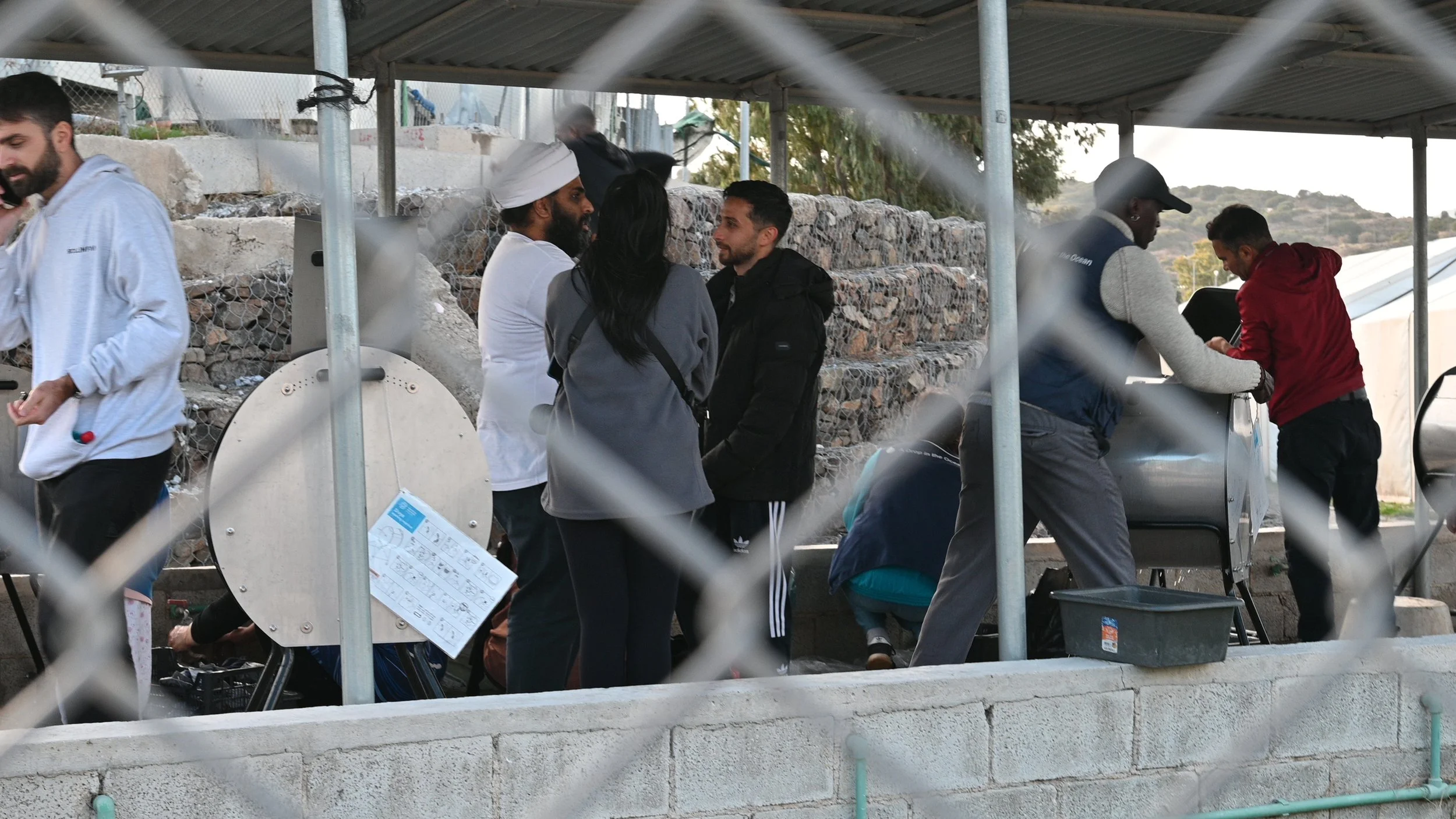
Humanitarian
-
Working with agencies such as UNHCR, UNICEF, UK-Med and Drop in the Ocean to distribute washing machines to facing and currently experiencing displacement.
Access to clean laundry should be treated as a fundamental human right. Displacement can be the toughest time in someone's life, something as simple as having access to laundry solutions can play a small part in making a transitional time in someone’s life a little easier.
Laundry is often overlooked, and we mean to change the attitude when it comes to essential services - especially in refugee settlements.
The Divya washing machine is a service that fits the nexus between an initial humanitarian and disaster response, through to development - as often refugee camps can exist many years beyond their intended purpose, with inhabitants ever increasing.
In Kyangwali and Greece data collected by TWMP and our partners, suggests that laundry provisions are some of the most important factors for displaced people. Most refugee camps will have frequent and weak electricity and even with electric washing machines, hand washing is relied on.
Electric washing machines have to be stored in a central area and can often only be accessed at certain times, with delays and faults a common occurrence. Qualitative data collected shows that users are sometimes afraid to leave their children for a short period of time - preferring to hand wash in their rooms or outside.
Closed Control Access Centre - Lesbos, Greece
-
Over 120 people are using the facility each week
Processing Over 340 kg of laundry.
Freeing up capacity for electric machines to combat in-camp diseases such as scabies.
CCAC camp stands on Lesbos island in Greece and predominantly houses those who fled after the US withdrawal from Afghanistan, as well as Syrians, Eritreans, Sudanese and those feeling from Palestine.
We visited CCAC camp in December 2024 to see how the washing machines were forming an essential part of the laundry provision.
Located in a central area within the main site, the wash station is available to book from 9am to 4pm each day in 45 minute slots. The appointment system allows users of the machine more agency to choose exactly when they want to wash their clothes - it also enables more vulnerable types of residents and families time to do laundry in safety - with single men having the chance to wash at other times of day.
Due to capacity of the centre a manual washing machine is a important offering alongside the electric laundry service provided by A Drop in the Ocean, with residents having to wait to two weeks between rounds.
After the successful implementation of 5 Divya Washing Machines within CCAC - 30 more machines have been successfully delivered and will be used set up similar laundrettes throughout the refugee centre.
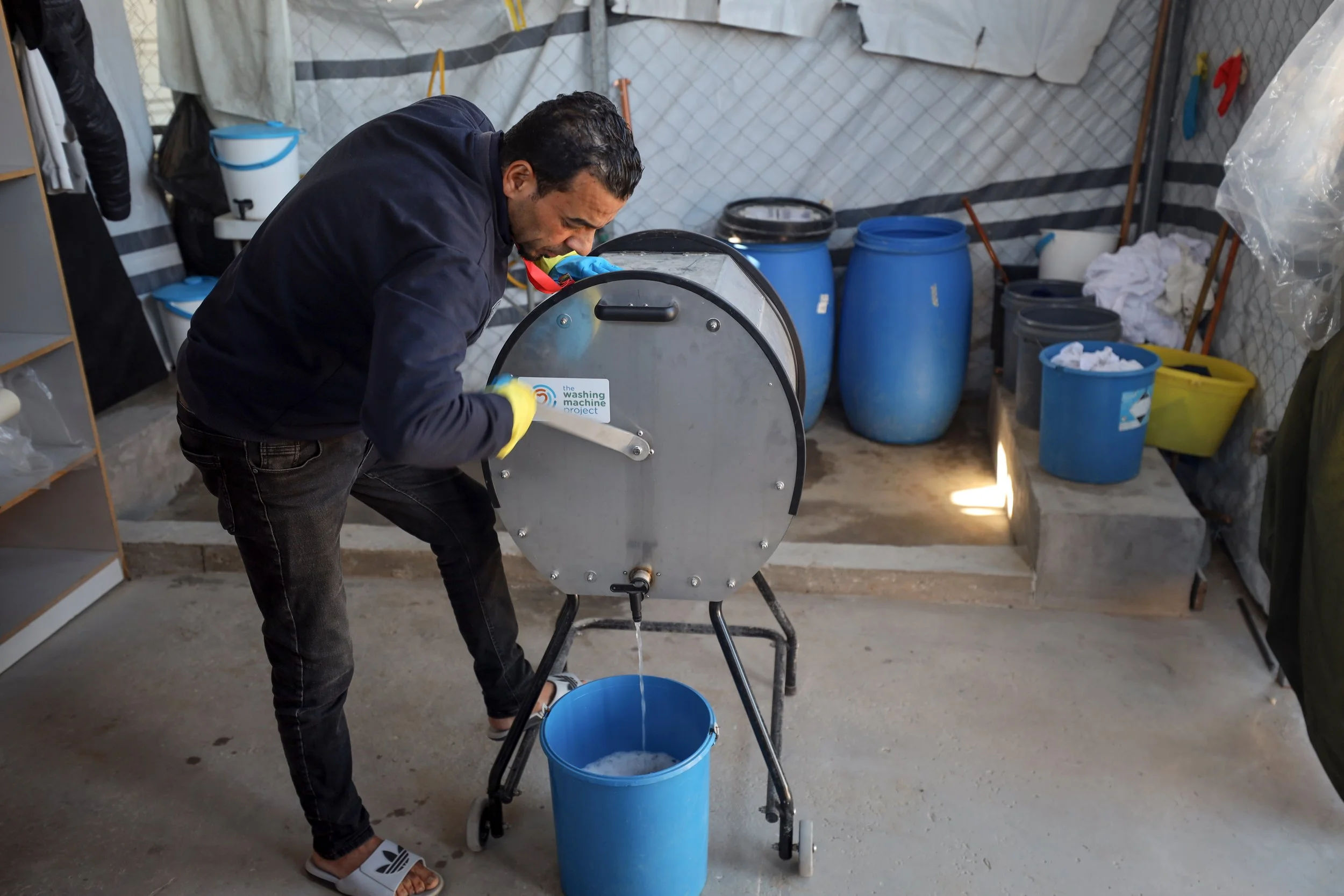
Crisis
-
Designed for use in low-resource settings, these machines improve hygiene and ease the physical burden on vulnerable communities and frontline responders.
The Washing Machine Project – Divya Machine Distribution: UK Med (Gaza)
In early 2024, TWMP responded to a request from UK Med to support their emergency medical response in Gaza with washing machines.
Number of Machines 4
Deployment Setting 4 community-use machines placed in field hospitals in Al-Musawi, Gaza
Four Divya manual washing machines, built in Warrington, were delivered to UK Med’s Stockport warehouse. From there, they were flown to Jordan and transported across the border into Gaza, a logistically complex and time-intensive effort due to the significant challenges of getting humanitarian aid into the region.
Purpose and Impact
The machines are now in active use within UK Med’s field hospitals in Al-Musawi. They are being used to wash bed linens, medical scrubs, and heavy blankets, essential items for patient hygiene and comfort. This not only helps reduce the risk of contamination but also supports the hospitals in preparing for the harsh winter months by ensuring clean, warm bedding is available for patients.
Importantly, the manual, off-grid nature of the Divya machine means it significantly reduces the reliance on electricity, a resource that is extremely scarce in Gaza. By using our machines, the hospitals can maintain hygiene standards without putting further pressure on the limited power supply.
These machines are a small but critical contribution to the frontline humanitarian response, supporting both patient care and the wellbeing of the medical teams delivering it.
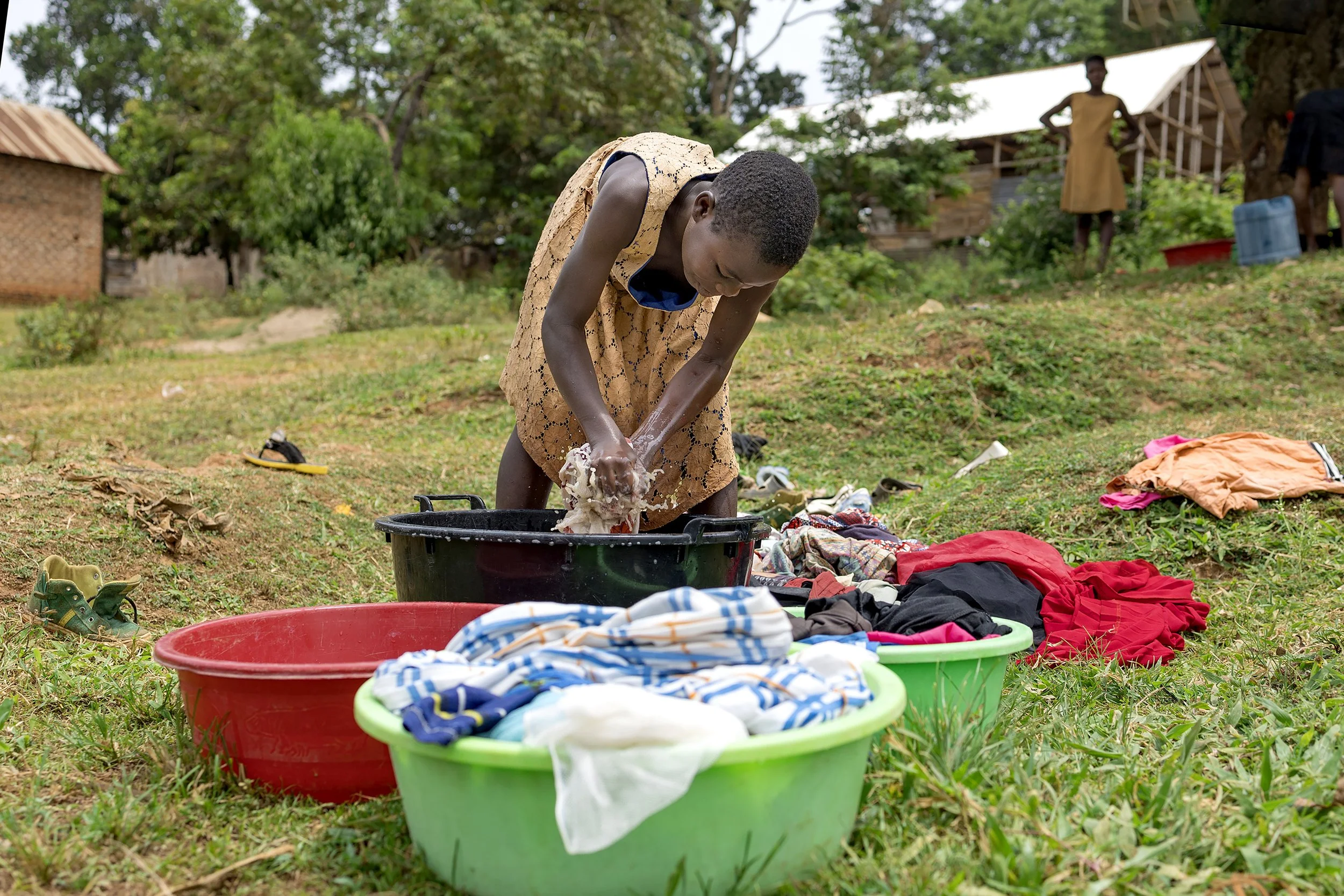
Help The Washing Machine Project reach more users.
Donate to TWMP Foundation
TWMP Foundation is a registered UK charity providing funding, oversight, and governance to support The Washing Machine Project’s work.
While the CIC designs and delivers practical solutions like manual washing machines, the Foundation independently reviews and funds eligible charitable projects aligned with our shared mission.
Learn more here: https://www.twmpfoundation.org/


